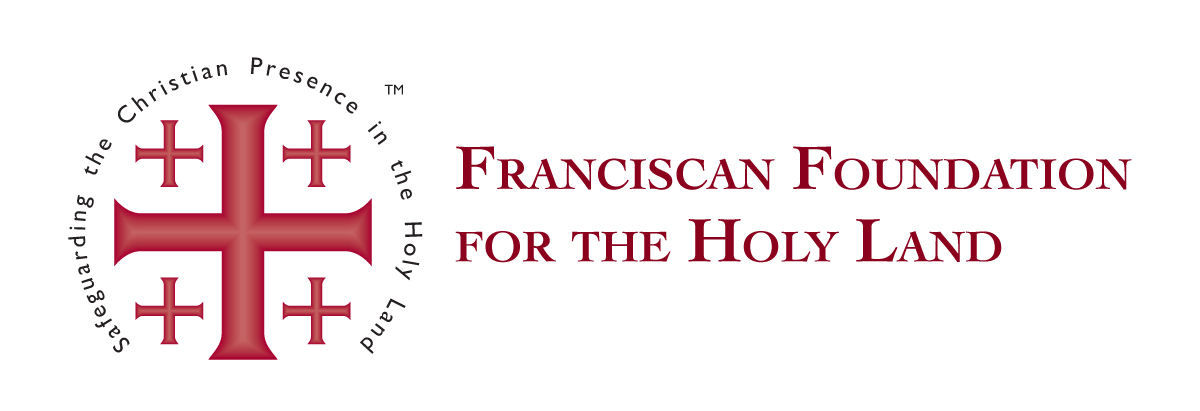Giving Thanks for the Living Stones of the Holy Land
As Thanksgiving approaches, many in the U.S. will pause to reflect on blessings, family and hope. In the same season, we mark GivingTuesday as an opportunity to turn gratitude into action. In this moment, it’s fitting to turn our thoughts toward a people who carry the weight of history, faith and endurance—the Christians who remain in the Holy Land. These men, women and children are what we might call the living stones of Christianity’s birthplace. Their presence is fragile, their path steep. And yet, their fidelity keeps alive the roots of our faith.
The Franciscan Foundation for the Holy Land (FFHL) works to sustain those very souls, Christian families in Bethlehem, Jerusalem, Nazareth, and across the region who, against the odds, refuse to abandon their heritage. Their struggle is not abstract. It is daily. It is real. And it compels gratitude—and response.
Why We Call Them “Living Stones”
In scripture, believers are compared to stones being built up into a spiritual house. The living stones are the faithful, grounded in place, embodying continuity. In the Holy Land, those stones aren’t monuments, they are people. They live in towns where Christian communities have shrunk to less than 2 percent of the population.
Because of economic hardship, political instability, security challenges and restricted opportunity, many Christian families leave. When people depart, churches close, schools shutter, history fades. FFHL’s mission is to stem that Christian exodus by giving people reasons to stay: access to education, housing support and basic humanitarian relief.
When we give thanks, it should not just be for our own comforts. It should stretch our vision outward, beyond our circle, to the faithful who endure in far harder conditions. Gratitude that risks complacency isn’t enough.
The Weight They Carry
Consider what life looks like for many Christian families there:
- Limited job prospects. Even with a diploma, employment is scarce.
- Rising costs of utilities, food, rent.
- Barriers to safe mobility, health access and infrastructure.
- Pressure from cultural, social and political marginalization.
- Anxiety over the loss of Christian heritage and shrinking numbers.
Many young people say what would persuade them to stay is the possibility of education. In fact, when asked what would have made them remain, many replied that access to university or vocational training would have changed their decision. FFHL’s Christian Student Education Programs aim to meet that need from primary school to vocational studies. Over time, the foundation has supported hundreds of students.
Humanitarian aid: food, medical support, basic relief, is a lifeline in times of crisis. FFHL intervenes in urgent moments, too.
The point is not to romanticize suffering, but to name the stakes. Each Christian family who stays is a sign, a testimony, a foothold. They preserve the living memory of the Incarnation, the missionary seed, the Christian witness in land where Christ walked.
Gratitude with a Purpose
In November, as we gather around tables, it’s not enough to feel thankful. Our gratitude should propel us to solidarity. That’s the pivot between Thanksgiving and GivingTuesday. If we truly believe that Christian presence matters in the Holy Land, then supporting those who keep that presence alive is no optional act. It’s urgent.
We can give thanks for:
- The teachers in Bethlehem who continue to show up amid insecurity.
- The students who wrestle with limited resources but press on toward studies.
- The families who refuse to abandon their ancestral homes.
- The local Christian leaders who sustain worship, catechesis and social connection.
- The friars who keep open the holy sites, day by day, even under strain.
Then, we turn that gratitude into action. We can:
- Share their stories. Bring awareness into your parish, prayer group or social network.
- Give a gift. On GivingTuesday (December 2, 2025), designate a donation to FFHL’s education, housing or humanitarian programs.
- Pray. Include the Holy Land Christians in your November and Advent prayers.
- Consider recurring support. Monthly gifts help sustain ongoing programs.
How Your Gift Serves the Living Stones
- Education programs: From primary school to vocational training, your funding helps students become teachers, technicians, leaders and scholars, forming a sustainable future.
- Humanitarian relief: In crises, your support provides food, medical care, basic necessities.
- Preservation of Christian community: Every person who remains strengthens local Christian life, church communities and hope.
A Closing Reflection
This November, as we give thanks, let us not insulate gratitude within our own walls. Let it reach across seas and decades to the Living Stones still rooted in a land long wracked by strife. Let us remember that their endurance is not by their own strength alone—it rests upon solidarity, prayer and sacrifice from outside.
On GivingTuesday, let our thanksgiving become tangible support, so these living stones are neither isolated nor forsaken. Let us stand with them, because the Christian presence in the Holy Land still matters.
GivingTuesday
GivingTuesday, following on the heels of Thanksgiving, invites generosity. It disrupts the consumer rush and offers a moment to channel abundance toward need. In a season of worship, feast and gratitude, supporting FFHL is a practical way to honor what matters: Christian presence, faith grounded in place and the sanctity of land that Christ sanctified by His birth, death and resurrection.
When you schedule or make a gift on GivingTuesday, you’re not just donating—you’re investing in Christian voices that would otherwise fall silent.



